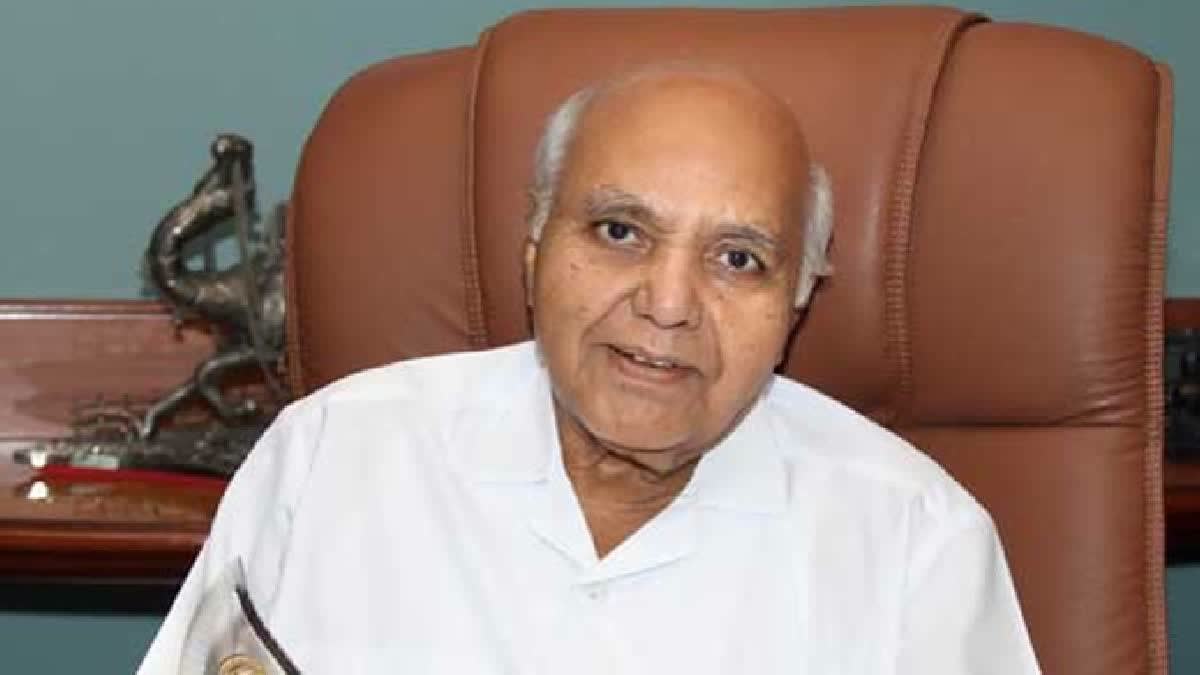Hyderabad: Ramoji Rao, known for his relentless commitment towards public welfare, consistently leveraged his resources to support and uplift communities during crisis situations. From the inception of his media empire to the present day, Rao's dedication to public service was unwavering
Immediate and Sustained Disaster Relief
Ramoji Rao had his presence during all disaster relief efforts. Whenever storms, floods, or earthquakes struck, Rao and his organisation promptly offered aid. Immediate donations were announced and significant funds were collected through 'Eenadu' to support the affected communities. Schools were built for children and educational initiatives were supported to ensure continuity in education despite the devastation.
A Commitment to Support
Rao's efforts went beyond providing news; he actively engaged in social responsibility, offering help during any societal danger. His call for donations often resulted in overwhelming responses, with millions contributing. Every contribution was meticulously utilised to aid those in need, lighting up lives and providing hope
Significant Contributions Across Various Disasters
In 1976, when cyclones devastated many lives, Rao collected donations through 'Eenadu' and contributed to the Chief Minister's Relief Fund. The following year, the Diviseema flood submerged Palakayathippa village in Krishna district, leading to significant loss of life and property. Rao's immediate assistance led to the collection of over Rs 3.73 lakh, facilitating the construction of 112 houses through the Ramakrishna Mission
During the 1986 Godavari floods, 50,000 food parcels were distributed. In 1996, after a severe cyclone hit the coastal districts, 42 schools were built across five districts with a total expenditure of Rs 3.36 crore. These schools, named Surya Buildings, continue to provide education and hope to many.
Helping Beyond Regional Boundaries
Rao's humanitarian efforts extended beyond Telugu states. In 1999, when a cyclone devastated Odisha, he announced a donation of Rs 10 lakh, resulting in a total collection of Rs 45.83 lakh that was used to build 60 houses through the Ramakrishna Mission. In 2001, after an earthquake ravaged Gujarat, Rao's immediate response included a personal donation, along with a total of Rs 2.22 crore collected, leading to the construction of 104 houses by the Swaminarayan Trust
Ongoing Philanthropy and Community Support
The 2004 tsunami in Tamil Nadu witnessed Rao announcing Rs 25 lakh aid, with donations eventually increasing to Rs 2.5 crore that were used to build 164 houses for the victims in Cuddalore and Nagapattinam. In 2009, after the Tungabhadra river flooded Kurnool and Mahabubnagar, 'Eenadu' distributed 1.20 lakh food parcels and collected a total of Rs 6.05 crore, providing significant relief to the affected communities
Long-Term Community Investments
Rao's efforts included building schools, providing looms to handloom families, and constructing houses in riot-affected villages across Telugu states, Odisha, Tamil Nadu, and Gujarat. In October 2014, Cyclone Hudhud's devastation led to a donation of Rs 3 crore and an additional Rs 3.16 crore collected through 'Eenadu', resulting in the construction of 80 houses in Visakhapatnam and 64 in Srikakulam. In 2018, floods in Kerala prompted a Rs 7.71 crore relief effort resulting in building 121 houses in Alappuzha district with the help of Collector Krishna Teja.
Corporate Social Responsibility Initiatives
Rao's corporate social responsibility initiatives have been transformative. The adoption of Pedaparupudi in Andhra Pradesh and Nagan village in Telangana led to significant infrastructural improvements, including roads, schools, and community halls. The Ramoji Group's contributions include building an orphanage in Kurnool, a police station in Abdullapur Met, and various government offices in Ibrahimpatnam
Legacy of Generosity and Social Responsibility
Ramoji Rao's legacy is marked by his unwavering commitment to public service and social responsibility. His extensive contributions have not only provided immediate relief in times of crisis but also fostered long-term community development, earning him a place in the hearts of countless individuals across India.
Read more



